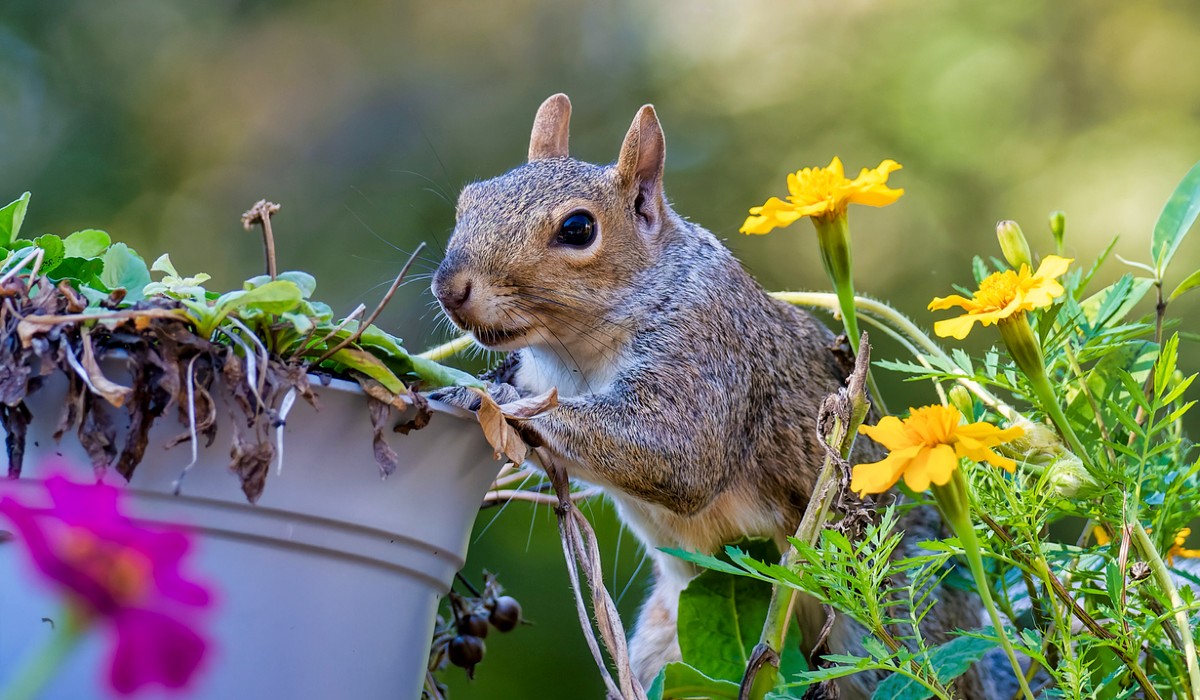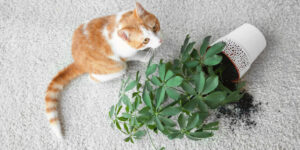
How to Keep Squirrels Out of Potted Plants: A Comprehensive Guide
Squirrels can be adorable creatures, but they can also be a gardener’s worst nightmare. Their tendency to dig in potted plants, uproot seedlings, and munch on tender leaves can wreak havoc on your gardening efforts. This article provides a detailed guide on how to keep squirrels out of your potted plants, including effective strategies, natural repellents, physical barriers, and more.
Understanding Squirrel Behavior
Why Do Squirrels Dig in Potted Plants?
Squirrels dig in flowerpots for several reasons:
- Food Storage: Squirrels often bury food items like nuts and seeds. The soft soil of potted plants makes them ideal for this behavior.
- Nesting Material: They may also be searching for materials to build nests.
- Curiosity: Squirrels are naturally curious animals and may dig in pots simply to explore.
Understanding these behaviors can help you devise effective strategies to deter them.
Effective Strategies to Keep Squirrels Away
1. Natural Repellents
Using scents that squirrels dislike is one of the most effective ways to deter them from your potted plants. Here are some natural repellents you can use:
| Repellent | Description |
|---|---|
| Cayenne Pepper | Sprinkling cayenne pepper around the base of your plants can deter squirrels due to its strong smell. |
| Coffee Grounds | Used coffee grounds not only repel squirrels but also enrich the soil with nutrients. |
| Garlic Powder | The pungent smell of garlic is unappealing to squirrels. Mix it with water and spray it on the plants. |
| Essential Oils | Oils like peppermint, clove, and cinnamon can be mixed with water and sprayed around the plants. |
2. Physical Barriers
Creating physical barriers can effectively prevent squirrels from accessing your potted plants:
- Chicken Wire or Mesh: Cover pots with chicken wire or mesh until plants are established. This prevents squirrels from digging.
- Plastic Forks: Insert plastic forks into the soil with the tines facing up. This creates a spiky barrier that deters digging.
- Gravel or Stones: Place a layer of gravel or small stones on top of the soil. This makes it difficult for squirrels to dig while allowing water to penetrate.
3. Companion Planting
Incorporating specific plants that deter squirrels can be an effective long-term strategy:
| Plant | Reason for Deterrence |
|---|---|
| Lavender | The strong scent repels many pests, including squirrels. |
| Marigolds | Known for their pest-repelling properties, they can also deter squirrels. |
| Alliums | Garlic and onion varieties are particularly unappealing to squirrels. |
4. Motion-Activated Sprinklers
Installing motion-activated sprinklers can scare off squirrels when they approach your plants. The sudden burst of water startles them and conditions them to avoid the area.
5. Ultrasonic Repellents
Ultrasonic devices emit high-frequency sounds that are unpleasant for rodents but inaudible to humans. These devices can be placed around your garden to deter squirrels.
Tips for Implementation
- Combine Methods: Using a combination of repellents and physical barriers increases effectiveness.
- Reapply Regularly: Natural repellents need reapplication, especially after rain.
- Monitor Effectiveness: Keep an eye on your plants and adjust strategies as needed.
Frequently Asked Questions (FAQ)
Q1: What scents do squirrels dislike?
A1: Squirrels tend to dislike strong scents such as cayenne pepper, coffee, garlic, and certain essential oils like peppermint.
Q2: Can I use commercial repellents?
A2: Yes, there are commercial squirrel repellents available that may be effective in deterring these animals.
Q3: Will these methods harm the squirrels?
A3: No, these methods are designed to deter squirrels without causing them harm.
Q4: How often should I reapply natural repellents?
A4: Reapply natural repellents after rain or every few weeks for optimal effectiveness.
Q5: Are there any plants I should avoid?
A5: Avoid planting species that attract squirrels, such as those with edible seeds or nuts.
Conclusion
Keeping squirrels out of potted plants requires a combination of understanding their behavior and implementing effective deterrent strategies. By using natural repellents, physical barriers, companion planting, and other methods outlined in this guide, you can protect your precious plants from these pesky critters.For more information about gardening and pest management, consider visiting Wikipedia.


